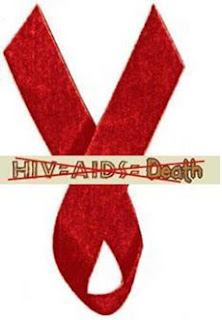 |
| hiv = aids = death? |
- Sexual contact sexual relations with someone infected with
- Contact with an infected needle or syringe (Sharing needles with someone infected with HIV).
- HIV may be spread to children from their mothers during childbirth or during breastfeeding.
HIV Preventative Steps Include:
- Talk to your sexual partner about HIV and other sexually transmitted diseases (STDs).
- Learn as much as possible about your partner’s past sexual behavior, previous sexual partners, drug use and lifestyle.
- Abstain from sexual relations (anal, vaginal and oral) until you are in a relationship with only one person and you both are having sex only with each other.
- Use a condom every time you have sexual contact.
- Do not share needles or syringes with anyone.
- Get tested for HIV and other STDs.
|
|
HIV Treatments
Advances in HIV treatments since the HIV/AIDS epidemic began in the 1980s have helped to slow the progression of the HIV infection to AIDS. As a result of advancements in medical research and sciences, the number of fatalities resulting from AIDS has decreased in the United States. Although there is no known cure for HIV/AIDS, it is a manageable virus.
According to the National Institute of Allergy and Infectious Diseases, there are currently thirty-one antiretroviral drugs (ARVs) approved by the the U.S. Food and Drug Administration for the treatment and management of HIV and AIDS. These drugs do not cure or get rid of HIV or AIDS, but they do suppress the virus and allow the infected person to live a longer, healthier life.
It is important to note, that although the virus can be suppressed via use of ARVs, HIV/AIDS can still be spread by the infected individual. It is critical that the infected patient use all safeguards to prevent the spread of the virus to anyone.
Treatment Complications, Dangers and Potential Side Effects
Like many drug treatments, the medications used to treat HIV/AIDS can cause complications and side effects. Antiretroviral drugs (ARVs) on rare occasion can cause critical medical complications including: alterations in metabolism and bone loss.
Infected individuals need to be aware of possible complications when taking any medication and be alert to their body’s reaction to the drug. It is important to convey any worries concerning your HIV treatment with your doctor.
Research has shown that HIV can create variants resistant to antiretroviral drugs when patients neglect to take all their prescribed medications consistently. It is critical for those infected with HIV to talk to their physicians about their worries or hardships with their recommended drug schedule.
Some patients experience uncomfortable side effects and may have trouble keeping up with the required daily medication schedule. If this is the case, it is recommended that the patient and physician find a substitute solution as quickly as possible as inconsistency with antiretroviral drugs may allow the HIV virus to become resistant to that specific medical treatment.
HIV Support Groups
 |
| hiv support group |
The World Health Organization (WHO) states that support groups can provide key psychosocial support to people living with HIV/AIDS. Becoming infected with HIV can affect all aspects of the infected individual’s life as well as the life of their family and caregivers. Support groups may help HIV patients better deal with their disease. Support groups should not be used to replace professional psychological services.



0 komentar:
Post a Comment